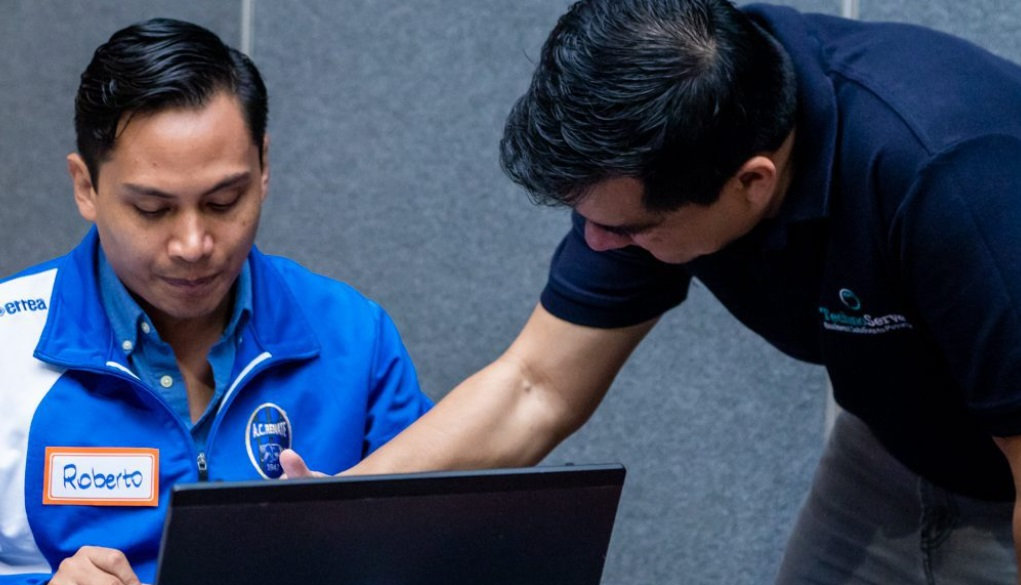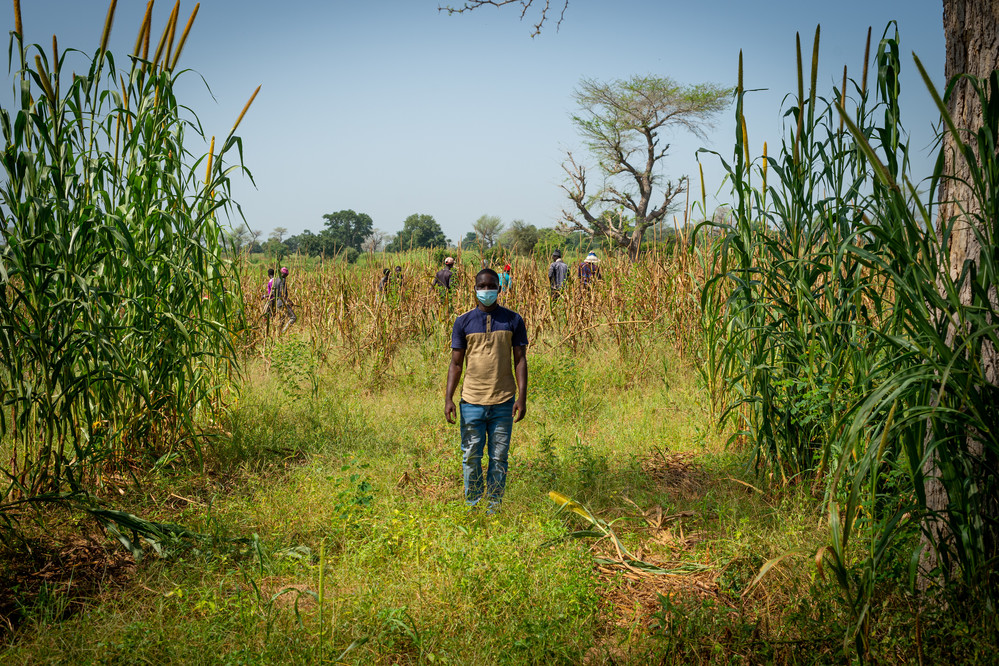In Central America, the number of young people entering the job market outpaces the availability of jobs. But many young people lack the skills they need to find or create economic opportunities, leading them to seek a better future elsewhere. How can thriving small and growing businesses reverse this trend?

Photo: TechnoServe
Economic growth in Central America shrunk by an estimated 6.5% last year, primarily due to knock-on effects from the COVID-19 pandemic. Despite an anticipated 3.8% rebound this year, current economic growth is insufficient to generate quality employment opportunities in the region, particularly for youth.
The Problem with Farms
But even before the pandemic, young people in Central America faced significant challenges as they sought a brighter future. As the population grew, successive generations subdivided agricultural land, and average farm size shrunk.
As land size decreased, so did the profitability of cultivating crops such as coffee that once sustained generations of farmers. As a result, many people – and youth in particular – have been forced to seek employment opportunities off the farm.
Education as the Foundation for Future Economic Opportunities
But lack of access to quality education has left many young people without the skills they need to find jobs in the formal workforce or run successful businesses. Despite modest economic growth pre-COVID, the region has not created enough new jobs to keep up with the emerging workforce. In 2019, nearly 28% of youth in El Salvador were neither in school nor working, and that number was even higher among women.
For many youth, these obstacles eventually force them to make an unimaginable choice. Stay in their home country, facing a future with limited economic opportunities, or emigrate and risk everything for the possibility of a better life.
The root causes of migration are complicated and multifaceted, often including factors such as violence, political corruption, lack of access to education, and limited economic opportunities. Addressing these challenges therefore also requires a comprehensive approach.
Prioritizing economic opportunities for young people must be part of that strategy.
Small and growing businesses (SGBs) are engines of economic growth that provide not only income and employment opportunities, but key products and services to local communities. In low-income countries, SGBs account for 70%-95% of new jobs.
These businesses have the potential to lift entire communities out of poverty but often face challenges such as:
-
Difficulty finding skilled labor
-
Limited access to finance
-
Unreliable access to markets
Since 2015, TechnoServe has been helping youth in Central America access the formal business training they need to build prosperous careers and brighter futures through programs like the Crece tu Empresa (CRECE) program. A partnership between TechnoServe and the Citi Foundation, the program includes:
-
60 hours of business training
-
10 months of support
-
1:1 personalized advice from a business advisor
Meet Entrepreneur Roberto Landaverde
For young people like Roberto Landaverde, TechnoServe has provided the training, personalized support, and networking opportunities necessary to build a successful and sustainable company for years to come.
Roberto knew El Salvador needed a more inclusive society for deaf people. Four years ago, he started EnSeñas, which teaches sign language and braille, and rented a classroom to run his side business two days a week. When he was laid off from his job, Roberto took the leap into full-time entrepreneurship.
Roberto had a passion for teaching, but lacked the management skills to grow EnSeñas. So, a friend convinced Roberto to join the CRECE program in 2019, where he gained administrative skills, learned about financial organization, and got help expanding his business.
When the COVID-19 pandemic reached El Salvador, Roberto faced one of his hardest moments. He decided to suspend his classes for several weeks, thinking that the situation would improve in the short term. He even considered leaving the country.
But the TechnoServe training taught him how to adapt his classes to a virtual setting – going from classes through WhatsApp, improvised groups, and messy schedules, to a more controlled and planned academic virtual environment.
I learned how important it is to be prepared for everything. In the face of the pandemic we had to come up with new ideas to survive and we did it.” – Roberto Landaverde, entrepreneur, El Salvador
Based on the success of the virtual classes, Roberto decided to close his physical location and move all his operations to a virtual format, saving on high fixed costs. And he could invest in more efficient tools for the management of the new environment, such as Zoom Professional and Google Classroom.
EnSeñas then went from a membership of 40 students, to having 80 regular students. For the first time in four years, Roberto began to pay his own salary from the profits of his business, and his company is now more orderly, both administratively and financially.
The program helped me to take my work seriously and that, despite the situations, the important thing is to learn and move forward.”
Today, Roberto is saving to reinvest in EnSeñas while aiming to increase sales for next year by 30%.
“Thanks to the support of the program I was able to reduce costs, improve in the administrative area, digitalize the academy and dedicate myself 100% to my entrepreneurship,” says Roberto.
Roberto’s success is just one example of the ripple effect these businesses can have on their communities. Thus far, TechnoServe CRECE staff have worked with around 700 youths across Guatemala, El Salvador, Honduras, and Panama, helping them increase their sales by an average of 51% and generate more than 250 jobs.
This article was originally published by TechnoServe.

